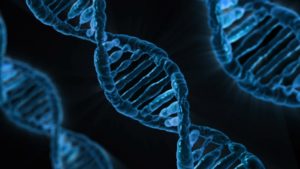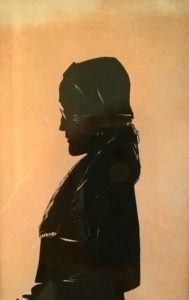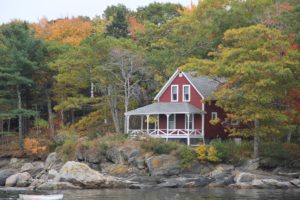 Recently, FindMyPast released a fun little ap on their website where you can compare your photograph with an ancestor’s and see how your looks compare. It set me to thinking what else we may inherit from our ancestors as well as physical features?
Recently, FindMyPast released a fun little ap on their website where you can compare your photograph with an ancestor’s and see how your looks compare. It set me to thinking what else we may inherit from our ancestors as well as physical features?
The answers are not necessarily set in stone, and it is interesting to note that there can be some argument over what kinds of thing are inherited, nurtured, or developed over a life time. Well, I thought I’d put down my own ideas about how much we inherit. Feel free to agree, disagree or put forward your own point of view!
LOOKS
 This is certainly the most obvious one, and it is generally accepted that we inherit our looks from a combination of our ancestors, often our parent or grandparents. Sometimes it seems that a particular facial feature comes down a line. I myself seem to have inherited the ‘Cregeen chin’ – a fairly prominent chin from my father’s mother’s family that you can also see in my father (to a certain extent), my uncle Alan, and my paternal grandmother. I have two silhouette portraits of my paternal grandparents, and you can see the family feature in this. In fact, my grandmother’s profile looks remarkably like my own.
This is certainly the most obvious one, and it is generally accepted that we inherit our looks from a combination of our ancestors, often our parent or grandparents. Sometimes it seems that a particular facial feature comes down a line. I myself seem to have inherited the ‘Cregeen chin’ – a fairly prominent chin from my father’s mother’s family that you can also see in my father (to a certain extent), my uncle Alan, and my paternal grandmother. I have two silhouette portraits of my paternal grandparents, and you can see the family feature in this. In fact, my grandmother’s profile looks remarkably like my own.
If you have old photographs back to the 1800s, it is indeed fun to see where you have inherited certain looks. There is a 12-year old great-aunt in one photo, that looks so like me when I was 12, that I did a real double-take when I first saw it!
If you have ancestors who were wealthy enough to commission portraits, then it is even more exciting to see something you see in the mirror every morning reflected back in a painting. A distant cousin I met through an ancestry site sent me such a portrait, dated around the 18th century, from our Yorkshire Pickering ancestors. Unfortunately, I cannot see myself in the pointed nose, and the crabby mouth – but there was something around the eyes that was slightly reminiscent of my father.
So, looks are a given – but what about…
SKILLS AND TALENTS
Oooh – interesting! I think many of us would like to think that we have perhaps inherited a talent for something from our ancestors or wonder if a love of a particular subject comes down from further up the tree. Obviously, we cannot inherit a specific knowledge, or even the skill, both of which have to be learned, but what about the desire for a particular career, or a natural talent for, say, carpentry, that seems to come from nowhere?
Speaking of carpentry, my father (who was an actor) was actually very good at knocking up the occasional small item or piece of furniture, and I have a very nice corner cabinet in my sitting room to prove it. His father was a clerk, but his grandfather was in fact a carpenter and joiner by trade, and died a few years before my father was born, so there was no personal contact. Coincidence? Hmmm… I wonder.
What about the creative arts? All of my close family are involved in some way in the arts, with my father an actor, my mother an artist, my brother a film maker and one-time actor and myself a writer (an also one-time actor). With regards to writing, my father certainly had a literal turn of mind, and was known to write a few article and short stories. Of course, it can be argued that talents within the nuclear family are perhaps ‘picked up’, learned through example, or copied because of close contact, rather than ‘inherited’. I do, however, like to think that there may have been someone further up my family tree who picked up a quill now and then and turned to the written word, or even was adept at telling stories (if they were not literate).
The trouble with these kinds of talents is that it is exceedingly difficult to find proof of those talents in historical records. The census records a person’s occupation, but we may never know what someone might have done by candlelight in the privacy of their own home. For most people in the past – and very much still today – it was almost impossible to turn a creative talent into a career that would earn a living and bring up a family, and so these things would remain a hobby for those of them who had the leisure time, but for the labouring classes they would probably rarely have the opportunity to express them.
CONNECTION WITH PLACES
This is an interesting one. Many years ago, when I was 14, I was lucky enough to spend several months with my parents in New York when my father was on tour there with the Royal Shakespeare Company. One day, we took a trip upstate through Nanuet and towards Connecticut. Massachusetts would have been too far, but I remember very clearly being intrigued by the pretty New England style clapboard houses, and my mother and I both feeling quite at home there. It was not until many years later (about five years ago in fact) that I discovered that one of my mother’s ancestors had emigrated to Liverpool from Massachusetts where he had come from a long line of Stickneys who had lived in that state since the early settlers. OK – we weren’t in Massachusetts in the 1970s, but that whole part of America known as New England, has a very distinct ‘feel’ about it which I love.
he had come from a long line of Stickneys who had lived in that state since the early settlers. OK – we weren’t in Massachusetts in the 1970s, but that whole part of America known as New England, has a very distinct ‘feel’ about it which I love.
Similarly, I always feel at home in Ireland, where I have many ancestors. Funnily enough, I also always feel at home in Scotland, although I have never been able to prove an ancestral connection. However, I do believe that our McEwen ancestors probably originated in Scotland via Ireland. Conversely, although I love France, I do not feel the same affinity with it, and it would never feel like home to me. Not surprisingly, I have no ancestry from France.
I have heard other people say the same thing. It’s a sense of something being vaguely familiar, or a feeling of being ‘home’. It’s nothing to do with the beautiful countryside – I also have a similar feeling about Liverpool. When waiting on the docks to board the Isle of Man ferry in my childhood, there was something about the grittiness and grime of the docklands and the Mersey that struck me somewhere very deep. It was years later that I discovred my ancestors had lived and worked there.
I also have good sea legs, and I would choose to go somewhere via boat or ship any time over flying! I have a long line of Manx fishermen ancestors on my father’s side, and my American mariners on my mother’s.
It doesn’t work for everyone. Just because you may have had sailors in your family tree doesn’t mean you’re going to love travelling by sea, just in the same way that facial features are repeated in some, and not in others.
ATTITUDES AND BELIEFS
If it is true that these can last through generations, it is more likely that this is because we pick them up from our parents, but we are also influenced by our peers and/or by the general ideologies of the time we live in.
CHARACTER
There is often much discussion over whether our characters and personalities are created by nurture or nature. In my opinion, this is a very complex issue and is very much a mixture of all kinds of things, including our parents (whether we copy or rebel), our peers, our schooling, or what we come into the world with. Again, it may be difficult to differentiate whether any family characteristics are learned from our parents, or whether there is some inherent family personality type that is somehow ingrained in our genes. The logical answer would appear to be the former, while the latter would be extremely difficult to prove unless you can find documents (such as letters or diaries) that express character in detail, and these are very rare.
SUMMARY
This has not been a very scientific investigation, and I have just been putting forward my own thoughts and experiences. What I find interesting is that while it is easy to explain why we inherit facial features, and possibly pick other family traits from our parents, it is very difficult to explain why one can experience such a strong feeling about a place, even if a family have not lived there for generations, and even when you have no idea that they ever did (such as my American ancestors).
This makes me wonder whether there is something other than genes, some other ‘force’ that can pass through the generations, and therefore lend some credibility to the ideas of inheriting character or personalities, even though this could probably never be scientifically proven.

